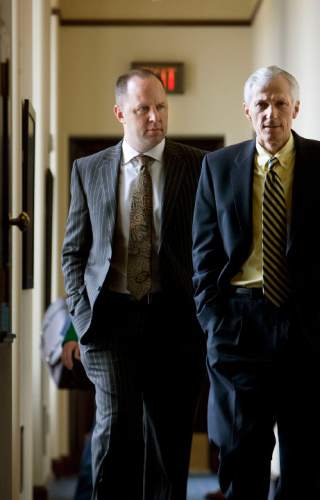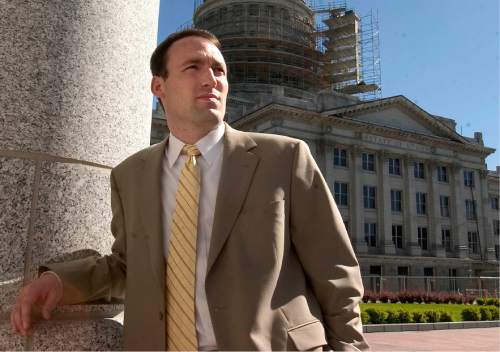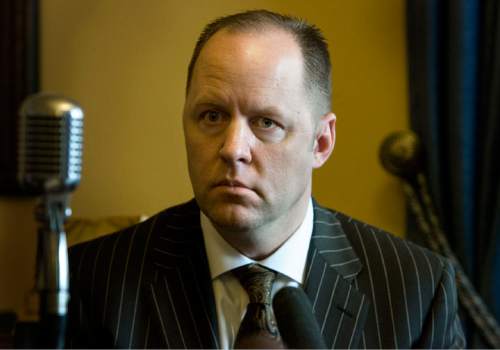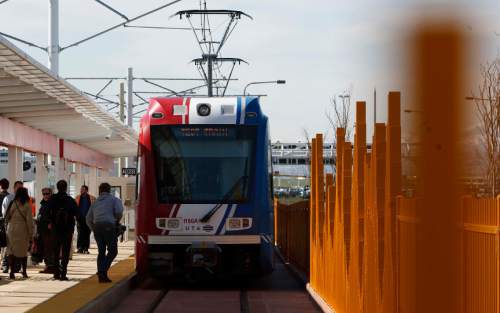This is an archived article that was published on sltrib.com in 2015, and information in the article may be outdated. It is provided only for personal research purposes and may not be reprinted.
The Utah Transit Authority approved expanded rules Wednesday seeking to prevent conflicts of interest by its board and top executives.
State law already requires board members to fill out a public statement each year listing any potential conflicts of interest that they may have.
New action by the board goes a step further, requiring detailed information about the personal finances, business dealings, assets, outside positions and gifts or travel reimbursements of board members and top executives.
That extra data will not be public, and will be used only by UTA compliance officers.
"We will continue to be open to public scrutiny" by continuing current public disclosure forms for board members, UTA Board Chairman H. David Burton said in an interview.
He said the additional private information is largely financial. "That gets to the point that you don't want to have that out in the public arena. If there is a conflict of interest that arises out of that, our compliance people will deal with it."
Burton said that collecting the additional information also "helps the individuals think about whether there is a conflict of interest. It helps us understand what the requirements are."
Burton said it is part of a continuing effort by UTA to build public trust, after controversies over sweetheart deals by UTA with developers, high pay and bonuses and extensive executive travel.
"Over the past year or so we have tried to deal with issues that have assailed us in the past in terms of gaining that public trust," he said. "This is another step in that process to hopefully assure the public that the board and the senior managers at UTA have no conflict of interest, and when those conflicts of interests arise they are dealt with appropriately."
An example of past problems with conflict of interest was when a 2010 legislative audit said former UTA Board member Terry Diehl, a developer, might have broken state law by possibly misusing official information to buy rights to develop land near a potential FrontRunner station before the general public knew where it might be located.
The audit said Diehl complied with somewhat weak disclosure rules at the time and continued voting on matters related to that commuter rail station, but he would have been in violation of stronger rules adopted later. The audit said he received millions when he sold his rights, although Diehl said it did little more than cover his costs.
Diehl denied any wrongdoing. But later that year, Diehl resigned from the board under pressure from its members.
In the past year or so, some other steps that the UTA Board has taken to polish its image included lowering possible executive bonuses from $30,000 to $7,500 (and executives voluntarily gave up bonuses for the next two years).
The board also required approval of international travel by executives in an open board meeting. But documents this week disclosed a trip to Switzerland by several current and former UTA officials — and UTA said it had not known in advance about that trip that was paid for by others (including a political action committee formed by two current UTA Board members).
Mistrust in UTA was listed by supporters and critics as a major reason why Proposition 1 — to raise sales taxes for transportation — failed in Salt Lake and Utah counties.









